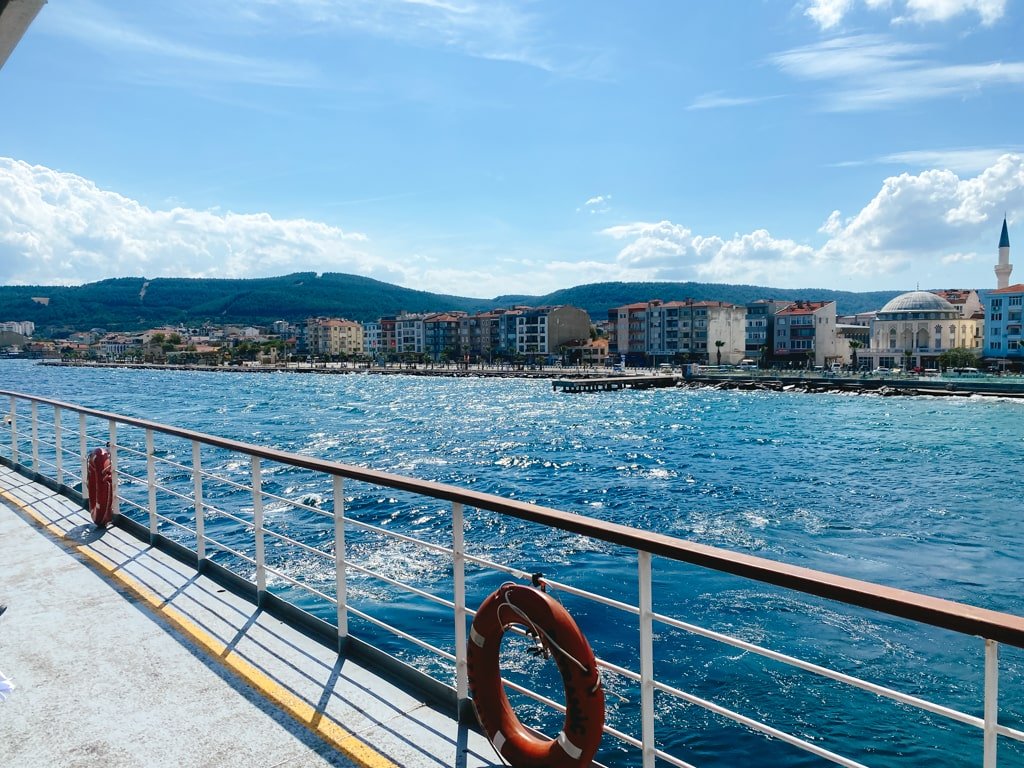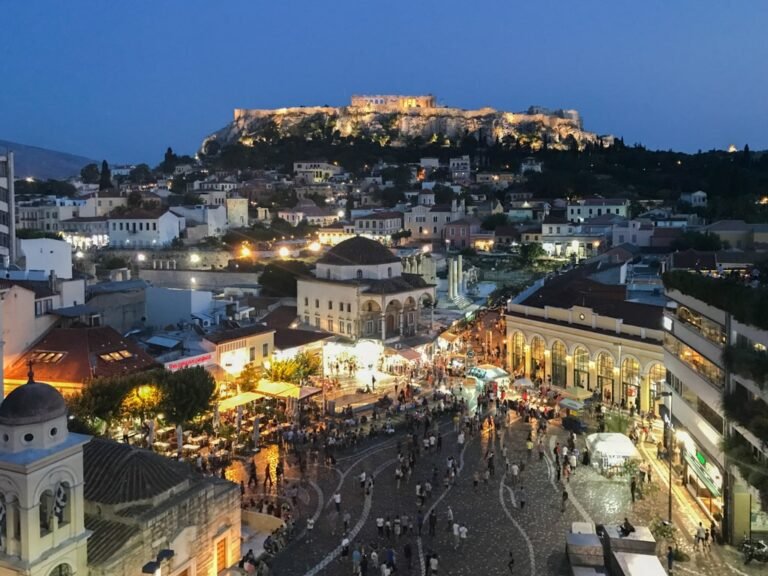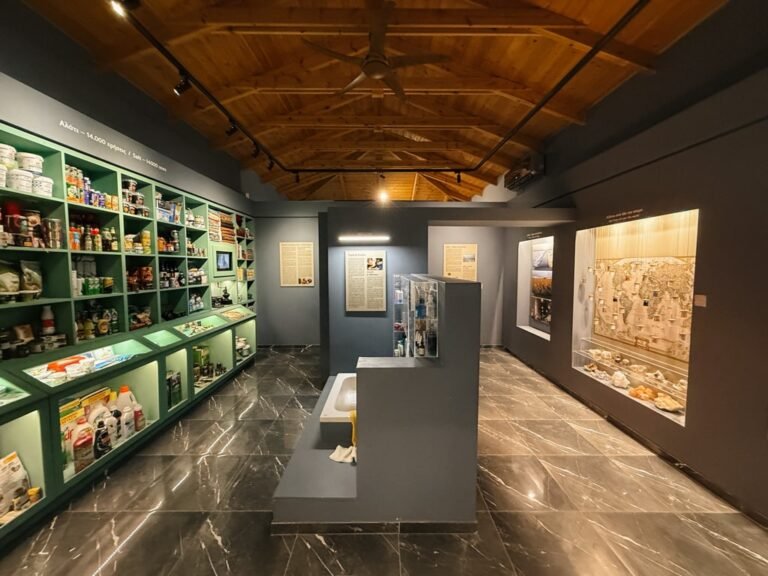This article may contain affiliate links. When you purchase something we recommend, we make a small commission. You don’t pay anything extra. 💘 For more details, check out our Terms of Use page.
I’ve had the chance to road trip through Turkey in a few different ways — growing up, we spent a few summers driving around the country while living in Antalya. More recently, I did a one-week road trip across Turkey as an adult, and it reminded me just how varied and beautiful this country is.
Whether you’ve got 4 days or 2 weeks, here are some flexible itinerary ideas to help you build a trip that fits your interests.
Table of Contents
ToggleTurkey Road Trip Itineraries
1. The Highlights Loop (14 Days)
Best for: First-time visitors who want a full overview of Turkey’s landscapes, culture, and major sites
Fly into/out of: Istanbul
Route:
- Istanbul (2–3 days) – Hagia Sophia, Blue Mosque, Grand Bazaar
- Gallipoli + Troy (1 day) – WWI sites + movie replica horse
- Bergama (1 day) – Acropolis ruins via cable car
- Pamukkale (1 day) – White travertines + Hierapolis
- Antalya (2 days) – Old town, waterfalls, food
- Konya (1 day) – Whirling dervish culture
- Cappadocia (3 days) – Hot air balloon, caves, valleys
- Back to Istanbul or fly out from Kayseri
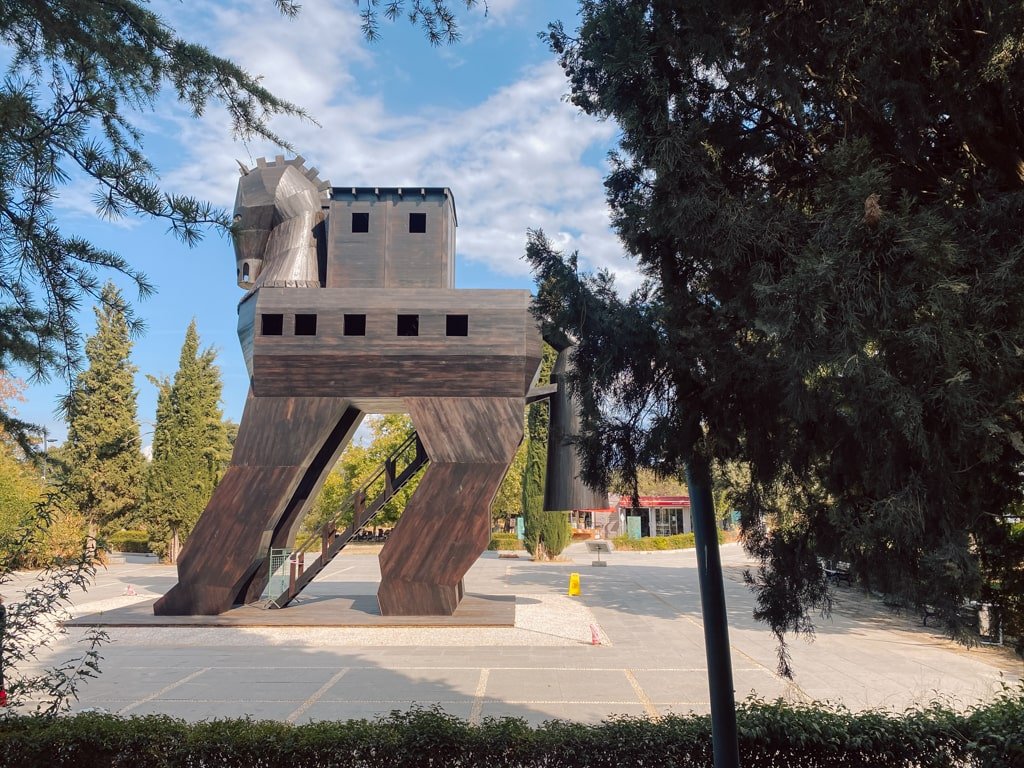
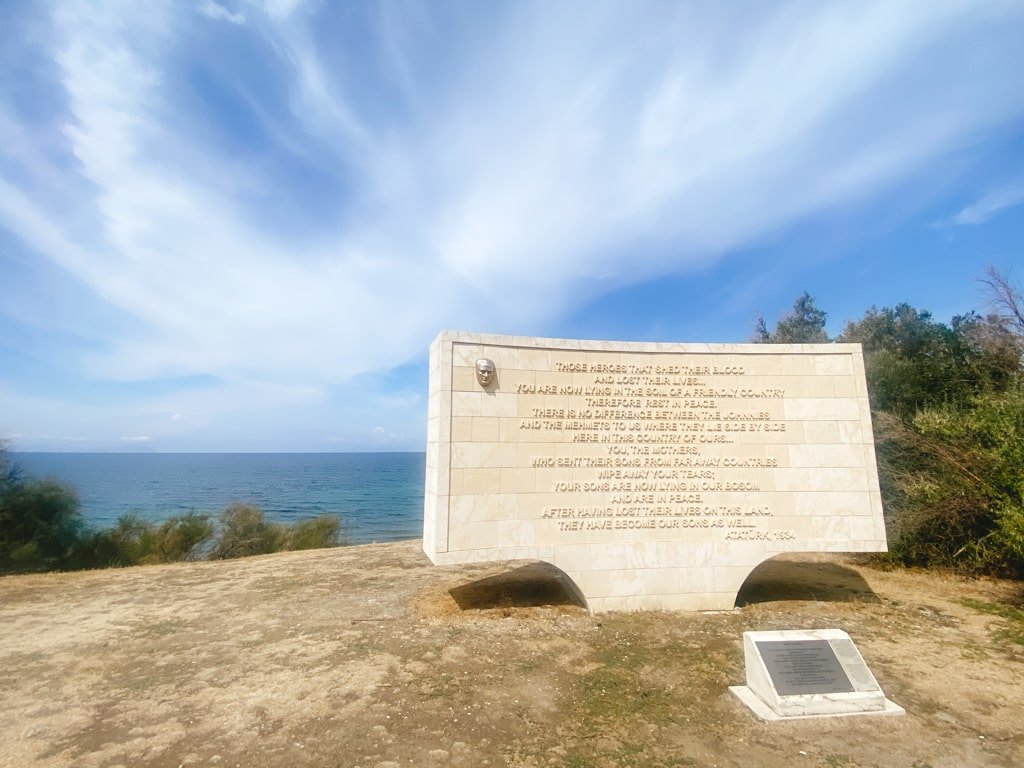
2. Bodrum & Turquoise Coast (7–10 Days)
Best for: Summer beach vibes, resorts, and the slow life
Fly into: Bodrum / Fly out of: Dalaman
Route:
- Bodrum (3–4 days) – Marina strolls, beach clubs, nightlife
- Akyaka (1 day) – Laid-back river town
- Fethiye (2–3 days) – Boat trips, paragliding, beach walks
- Kaş (2 days) – Chill town with coastal charm
- Optional: Add Kekova for underwater ruins
Perfect for couples, friends, or solo travelers who want a mix of swimming, luxury, and natural beauty.
3. Central Anatolia + Cappadocia Loop (7 Days)
Best for: History buffs, hikers, and anyone who prefers land to sea
Fly into: Ankara / Fly out of: Kayseri
Route:
- Ankara (1 day) – Museum of Anatolian Civilizations
- Hattusa (1 day) – Hittite ruins
- Cappadocia (3–4 days) – Hot air balloon, cave hotels, open-air museum
- Optional: Konya (1 day) on the way back to Ankara
4. Short Escape: Cappadocia Only (4 Days)
Best for: A quick but memorable trip that’s easy to manage
Fly into/out of: Kayseri or Nevşehir
Route:
- Göreme (base for 4 days)
- Day 1: Arrival + sunset walk
- Day 2: Balloon ride + valleys
- Day 3: Underground city + Avanos
- Day 4: Chill, shop, and fly out
Ideal for people on a tighter schedule who still want a trip that feels special.
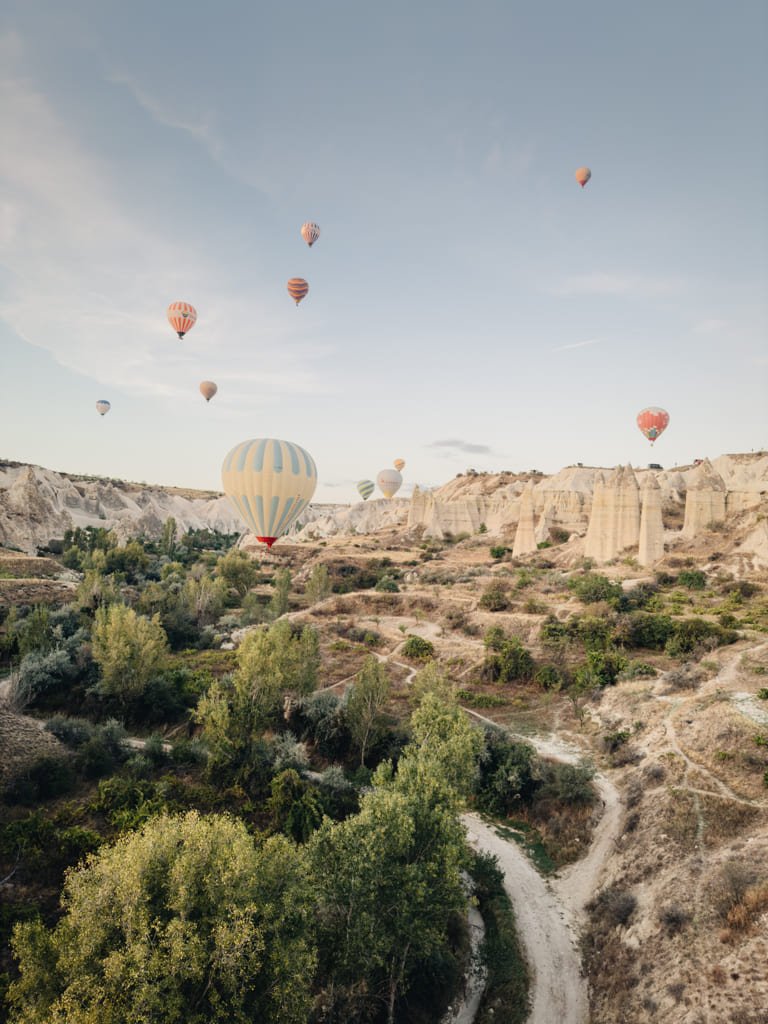

5. Istanbul to Antalya via Inland Turkey (7 Days)
Best for: Travelers who want an east-west taste of Turkey with archaeological stops
Fly into: Istanbul / Fly out of: Antalya
Route:
- Istanbul (2 days) – Markets, mosques, ferry views
- Eskisehir (1 day) – Turkish Venice + student city vibe
- Afyon (1 day) – Old city + thermal baths
- Pamukkale (1 day) – Thermal pools
- Antalya (2 days) – Rest at the coast
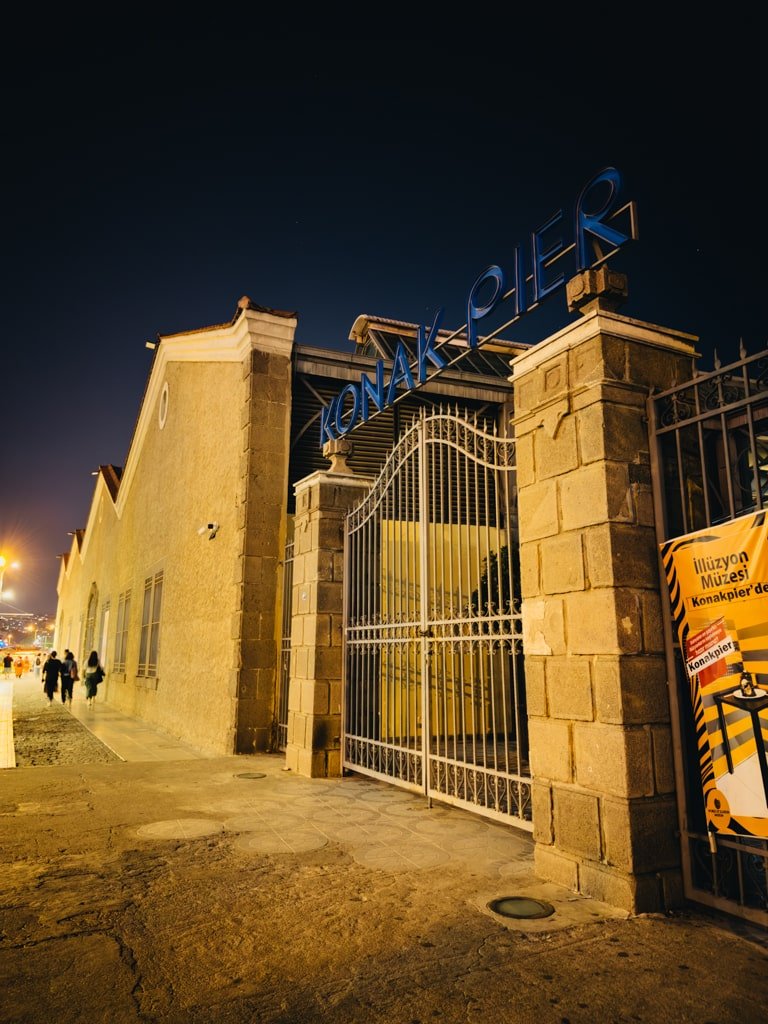
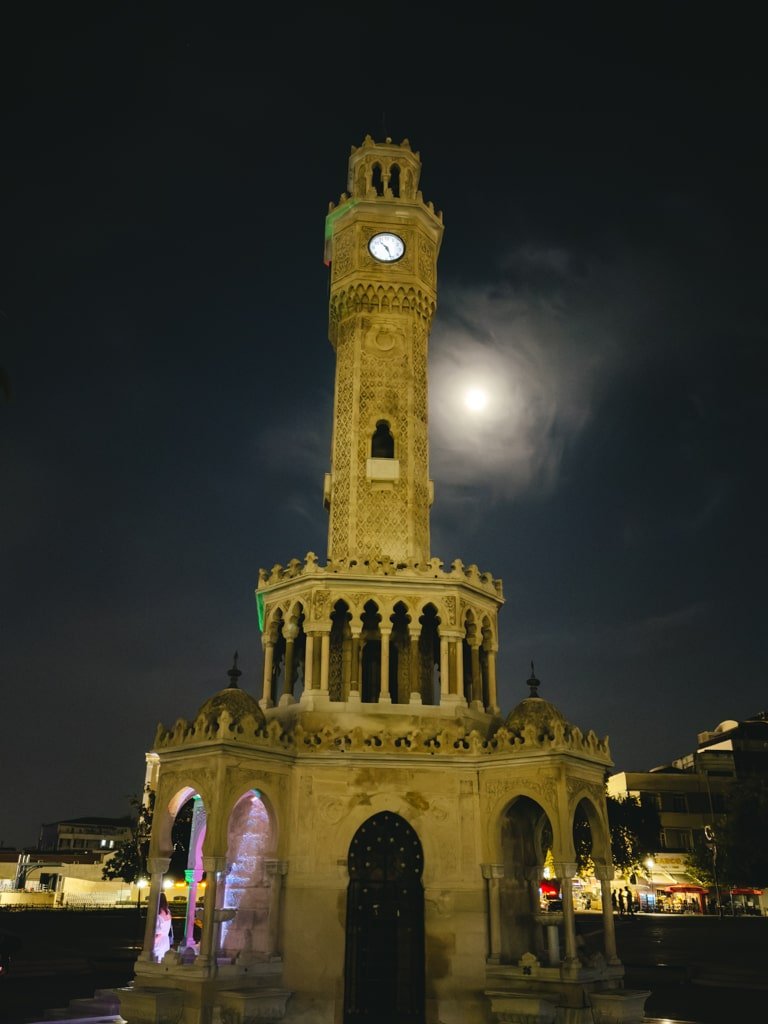
6. Fast Road Trip East to West (8 Days)
If you’re looking for a well-rounded route that covers a lot in just over a week, this is the exact road trip I took — and I’d do it again in a heartbeat. It’s ideal if you want to explore both the Aegean coast and inland gems like Cappadocia without rushing too much.
*** Read the full piece here: How to Road Trip Turkey in 2 Weeks: Full Itinerary + Budget Breakdown
Route:
Istanbul → Gallipoli → Bergama → Izmir → Pamukkale → Cappadocia (2 nights) → Burj Al Babas → Istanbul
Suggested Duration in Each Stop:
- Day 1 – Drive from Istanbul to Gallipoli, visit the memorial sites and stay overnight in the area or continue on
- Day 2 – Bergama (1 night): visit the Acropolis and archaeological site
- Day 3–4 – Izmir (1–2 nights): relaxed coastal break, great for food and wine lovers
- Day 5 – Pamukkale (1 night): stunning terraces and Hierapolis
- Day 6–7 – Cappadocia (2 nights): balloon rides, valleys, and surreal landscapes
- Day 8 – Stop at Burj Al Babas for a surreal detour before heading back to Istanbul
This route gives you an incredible cross-section of Turkey: ancient ruins, coastal charm, natural wonders, and otherworldly landscapes. It also offers a good balance of sightseeing and driving time — with some days longer on the road than others, but always rewarding.

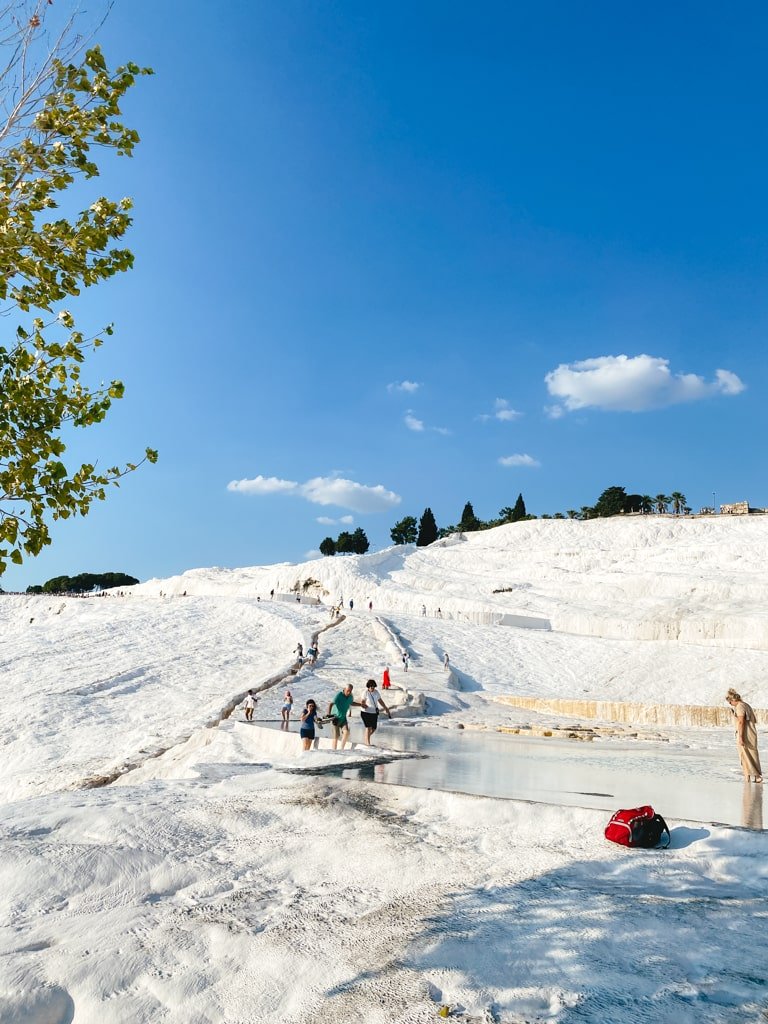
Driving in Turkey
I was lucky enough not to be the one behind the wheel during most of our trip — which, to be honest, was probably for the best. Rules are more like suggestions, and while the roads themselves are in great condition (especially highways and major coastal routes), the driving style takes some getting used to.
You’ll notice a lot of last-minute lane changes, aggressive merging, and plenty of honking. If you’ve driven in Southern Europe before, it won’t feel wildly unfamiliar, but you definitely need to stay alert. Roundabouts can turn into free-for-alls, and parking in small towns or historic centers is often tight and informal. On the plus side, signage is decent, and Google Maps worked perfectly throughout our trip — even in rural or mountain areas.
If you’re planning to rent a car, just double-check if it includes the HGS toll pass so you can pass faster and consider renting something compact for ease of parking. I usually book through Discover Cars for better rates, and I’d do the same again for Turkey.
Travel Costs in Turkey 2025: What’s Changed
Let’s get this out of the way — prices in Turkey aren’t what they used to be. One of the biggest shocks was how much archaeological site entrance fees have increased over the past few years. What used to be a €5–€10 experience can now run you closer to €40. Pamukkale was the biggest surprise for us. We expected something like $10 based on older info, but ended up paying €40 per person just to get in. The cable car and Acropolis entry in Bergama was another example — €57 total for two people. Worth it for the view and the history, but it’s good to know what to expect.
That said, most sites are still stunning and worth the visit. Just factor them into your budget more consciously than you might have in the past. You might also want to prioritize a few “must-sees” and skip the ones that aren’t high on your list — otherwise, those entrance fees add up fast.
Meals, on the other hand, are still fairly affordable. You can easily find street food or small local spots where a full meal will cost you €3–€6. Mid-range restaurants will push it closer to €10–€15 per person depending on what you order. If you’re splurging on more tourist-oriented places or wine villages, expect closer to Western European prices.
As for fuel, it was surprisingly manageable. Petrol in Turkey in 2025 is around €1.70 per litre, which is definitely lower than Greece or Italy. Over the course of our road trip, we spent about €250 on fuel — which felt fair considering we covered over 2000km.
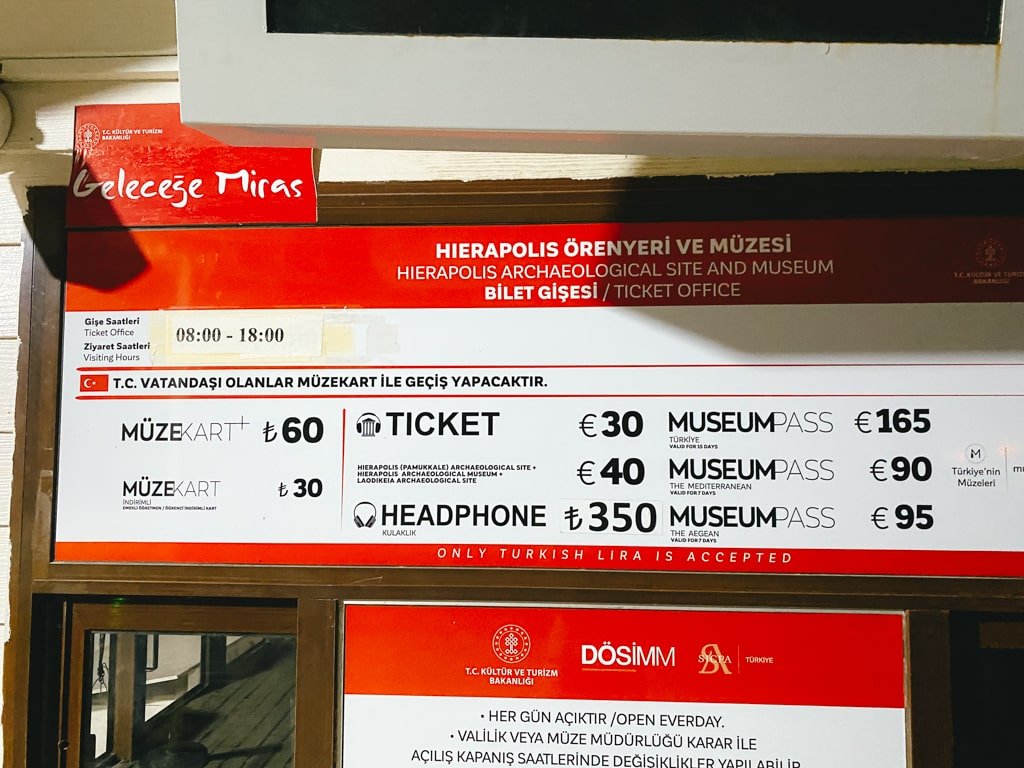
Prices in Pamukkale were a bit higher than expected. If you will be visited a lot of archeological sites, consider the MuseumPass.
Is It Safe to Travel in Turkey in 2025?
Yes — for the most part, absolutely. We didn’t run into any issues on the road, in cities, or in rural areas.
Of course, common sense still applies. Be cautious with your belongings in crowded areas, avoid flashing valuables, and be mindful at night in major cities. I’d also suggest being respectful of local customs, especially when visiting mosques or smaller villages — this goes a long way in terms of how you’re treated.
How to Budget for a Road Trip in Turkey (2025 Update)
Our full 6-day road trip cost around €2000 for two people, but it could have easily been done for less — or much more — depending on your comfort level and splurges.
Here’s roughly how our costs broke down:
- Car rental & fuel: ~€250 (for fuel and add another €450+ if you’re renting a car)
- Accommodation: ~€400 total (mix of budget and boutique)
- Food & drink: ~€400
- Activities (hot air balloon + entrance fees): ~€950
The hot air balloon in Cappadocia alone took up nearly half the activity budget, so if you skip that or go for a cheaper provider, you can shave a lot off the total. The rest of the budget was a mix of entry fees, tips, and casual meals or coffee stops.
A smart tip: book as much in advance as you can, especially accommodation in places like Bodrum or Cappadocia where things get booked up quickly. And always double-check entrance fees — old guidebooks and blogs are not accurate anymore.

We went with Urgup, as our hot air balloon activity provider and it was awesome! I highly recommend them and the prices are very reasonable.
FAQs About Road Tripping in Turkey
Is a road trip in Turkey worth it?
Definitely. The flexibility and diversity of landscapes are unmatched — beaches, ruins, mountains, and tiny towns all within hours of each other. You just can’t see this much by bus or train alone.
Do I need an international driver’s license?
Only if you stay for more than 3 months or if your license is not in English.
What side of the road do they drive on?
The right-hand side, same as in most of Europe.
How many days do I need?
Even a 4-day mini loop is worth it, but for a proper trip that includes Cappadocia, the coast, and historical sites, aim for 10–14 days minimum.
Is Cappadocia worth the hype?
Yes — but it’s not just the hot air balloons. The valleys, cave dwellings, and general vibe of the area are totally unique.
Are roads in good condition?
For the most part, yes. Highways are smooth, well-marked, and safe. Some smaller roads (especially in the mountains) can be narrow or winding, so plan your drive during daylight.
Can I use my card or should I carry cash?
Both. Most places take card, but always have some cash — especially for parking, small towns, or family-run places.
When is the Best Time to Visit Turkey?
The best time to road trip around Turkey really depends on what you want to do — but I’d say April to early June and then September to October are ideal. During these shoulder seasons, the weather is still great (warm days, cooler nights), crowds are smaller, and prices are more reasonable compared to peak summer.
July and August can be brutally hot, especially inland (Cappadocia gets desert-like), and the coast gets packed with locals and international tourists alike. If you’re mainly doing beach towns like Bodrum or Çeşme, then summer works — just book everything ahead and brace for higher prices.
Winter is quiet and surprisingly doable if you’re sticking to cultural cities and historic sights. Just be mindful that some coastal towns wind down completely and roads in mountainous areas can get icy.
Other Activities Worth Considering
There are a bunch of things I didn’t personally try on this trip, but they’re high on my list for next time:
- Scuba diving – Places like Kaş and Fethiye are known for having some of the best diving spots in Turkey, with shipwrecks, clear waters, and sea turtles.
- Sailing – If you have time and budget, a traditional blue cruise on a gulet (wooden Turkish boat) along the Turquoise Coast is meant to be incredible. These cruises often include stops at coves and quiet islands you can’t get to by road.
- Hiking – The Lycian Way is one of Turkey’s most famous long-distance trails and passes through ancient ruins, sea cliffs, and beautiful coastline. Even just doing a short section could add a whole new dimension to your trip.
- Paragliding in Ölüdeniz – This is one of the most famous places in the world to do it, thanks to the view of the bright blue lagoon below.
If your trip has room for it, pairing some of these with your road route could seriously elevate the experience.
Tandem Paragliding is very high up my list.
Here is one activity that I have bookmarked for next time.
Why a Road Trip is the Best Way to Explore Turkey
There are so many sides to Turkey — ancient cities, sleepy coastal towns, chaotic markets, empty highways with mountains on one side and the sea on the other — and the only real way to experience all that is by driving.
Public transportation is decent (buses are comfy and cheap), but it can’t give you the same flexibility. Some of our best moments came from last-minute detours, small-town food stops, or simply pulling over to admire a crazy view. That’s not something you get when you’re on a fixed itinerary.
Plus, if you’re someone who likes mixing popular spots with lesser-known ones, a road trip gives you the freedom to do just that. You can visit UNESCO sites and hot air balloon launch points, then spend the night in a quiet village or coastal town that wasn’t even on your original map.
And finally — Turkey’s infrastructure makes it easy. Highways are smooth, gas is cheaper than most of Europe, and the distances between destinations are shorter than you think. You can cover a lot without feeling like you’re spending your whole trip in the car.
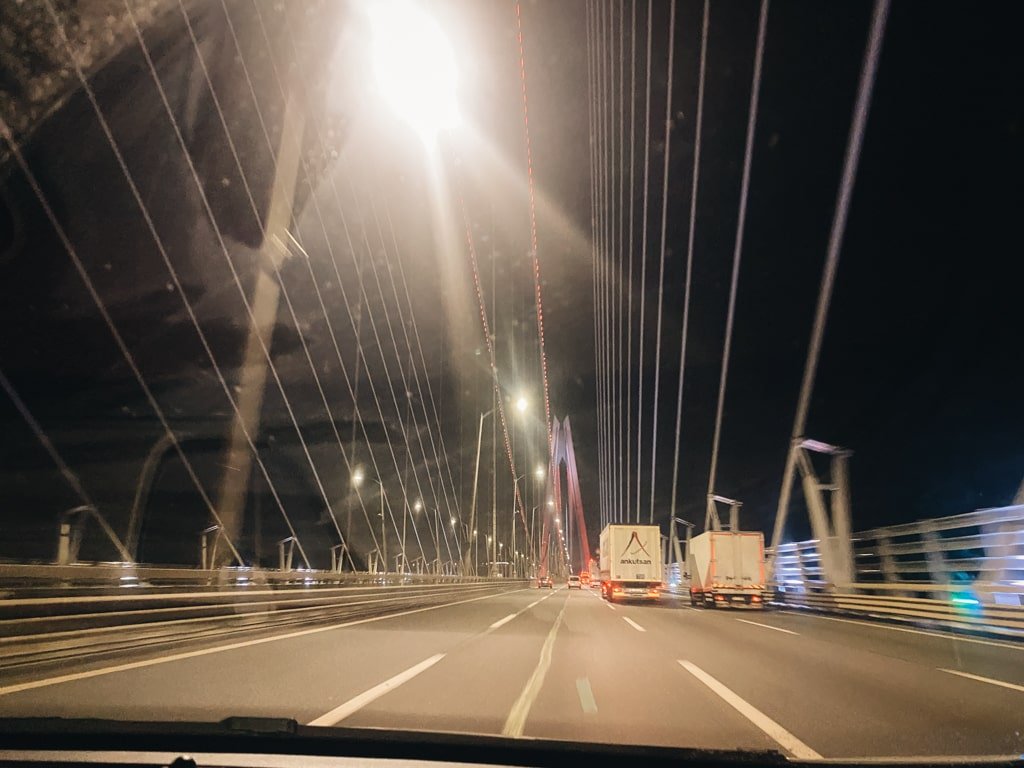
You Might Also Enjoy

How to Road Trip Turkey in 2 Weeks: Full Itinerary + Budget Breakdown
Drive from Istanbul to Cappadocia and beyond with this 2-week Turkey road trip itinerary, complete with must-see stops and a full budget breakdown.

6 Epic Turkey Road Trip Routes for 4 to 14 Days
Looking to road trip through Turkey but not sure where to begin? Whether you’ve got just a long weekend or two full weeks to spare, this guide has you covered. Based on my own experience driving across the country —

Burj Al Babas: What You Need to Know About Turkey’s Abandoned Disney Castle Village
Burj Al Babas was meant to be a luxury castle resort. Instead, it’s an abandoned ghost town of fairy-tale villas near Mudurnu, Turkey.

